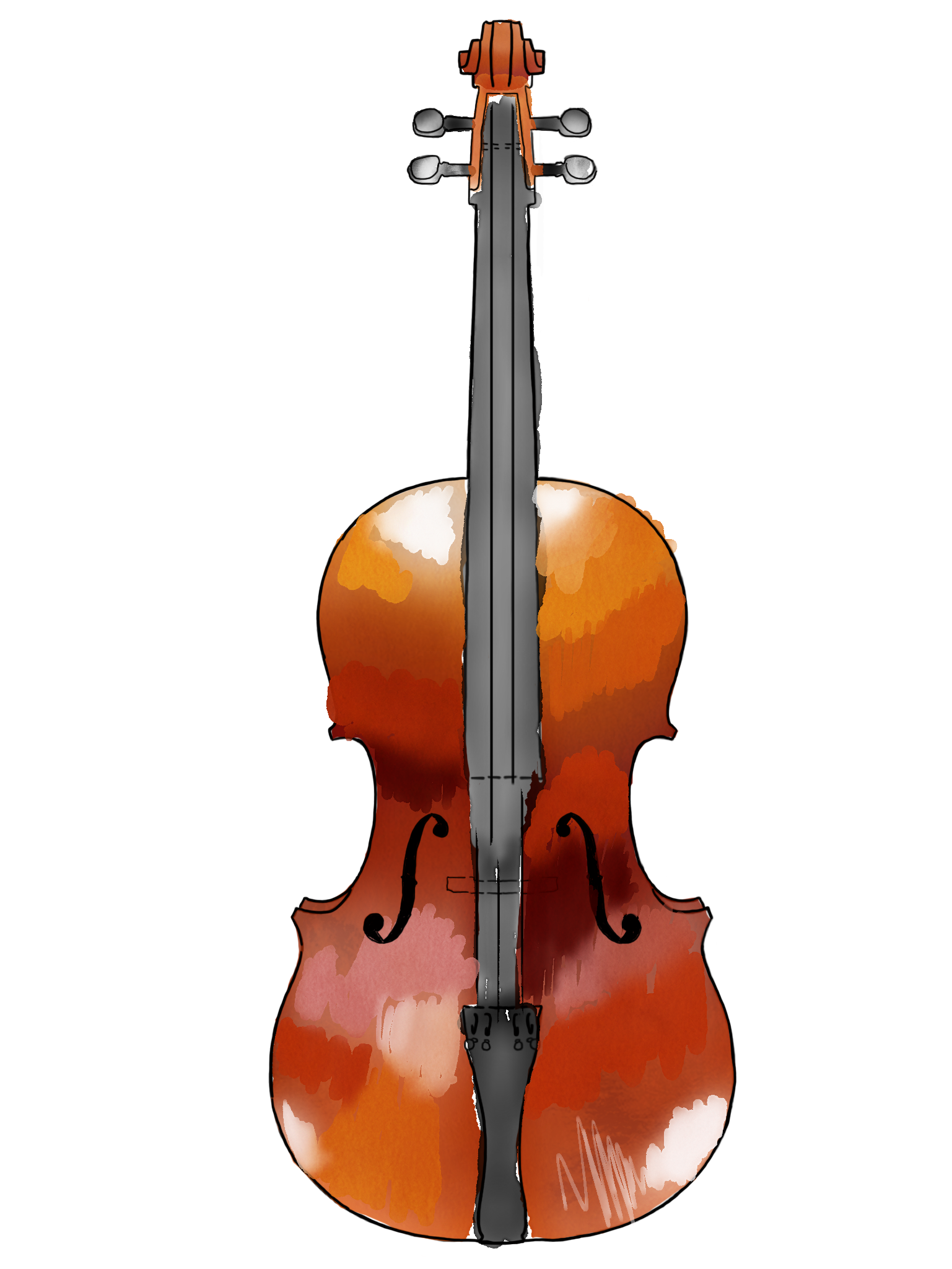Belmont Hill is mainly known for its scholars, athletes, and artists, but there are many musicians on the hill as well. From percussion to strings to brass, student musicians enjoy playing a wide range of instruments for a number of reasons. Whether it’s just to relax, or for the thrill of performing before a live audience, the music they create helps them in a number of ways, in and out of school. Boys across the middle and upper school alike are benefactors of the therapeutic effects of music: 25 boys, or approximately 5.6% of the student body, take lessons at Belmont Hill, while several more pursue music lessons outside of school but are involved in ensembles on the Hill. Practicing an instrument from a young age teaches students to be more productive, creative, and diligent. The instrumentalists on the Hill vary by origin story, but many have similarly learned life lessons and found a haven in music.
Many of the musicians that we spoke to did not begin their musical careers voluntarily. “I started playing the saxophone in 3rd grade because my school required an instrument, not really because I wanted to,” says Artemy Ivanov ‘20. “But now that I’ve come so far, I’m glad that I stuck with it.” This is the same story for many student musicians, whether it was a school requirement or an adamant parent, not many actually started out of their free will. But with time and practice, they came to love the songs their instruments could play, and just kept playing.
By contrast, second-former Lawrence Tang felt a personal calling to play the Alto saxophone. “I was listening to Jazz Radio when I was young when I heard the saxophone, and I just knew that I wanted to play the sax.” This interest persists and he continues to practice and play the sax. Charles Geddes ‘22, who plays three instruments (piano, guitar, and sax) says, “Playing these instruments has made me further realize my love for music.” The love for an instrument can be a strong source of motivation to come back and practice that instrument.
Some students at Belmont Hill picked up an instrument because they felt like they needed an activity to channel their energy. For example, Howard Huang, a violinist and second former, says, “ It bothers me when I am not doing anything and the violin helps fulfill my need keep busy.” Howard, like many other instrumentalists at Belmont Hill, was unsatisfied with idling his time away and saw music as a constructive, creative outlet for engagement.
Many students have found that playing an instrument has taught them important life lessons about perseverance. Rhocar Constant, a fourth form pianist, observes “I guess I’ve learned how important practicing is. Nothing really comes naturally and it’s important to perfect your art.” Rhocar thinks all students should try playing an instrument because “you never know whether you might like it.”
Despite Belmont Hill’s pressing workload, instrumentalists are committed to carving out time to play their instrument. When asked about how he juggles academics with music, saxist Lawrence Tang claims that playing his instrument has taught him to be more efficient. He says, “playing the sax has taught me to manage my time better.” Likewise, Rhocar Constant explains, “To be honest, I usually put schoolwork first. However, I usually try to get practice in between different subjects.” School necessitates time and dedication, but there is a clear capacity for the coexistence of music and academics; if students are passionate, they find time for both.
In spite of that notion, music certainly has a place in the community as an activity of leisure and relaxation. Music is indeed an avenue for many students to let loose and focus on a passion as an alternative to stressing about schoolwork. While some Belmont Hill musicians make their homes on the big stage, others play to relieve stress and perform simply to share that which makes them happy. A perfect venue for such instrumentalists is the biannual Belmont Hill Coffee House series, wherein musicians of any variety can share their passion with the community on a night that relieves stress for all. Whether as a venue where Henry Vettel ‘18 and the Upper School Rock Band can let loose with ‘80s alt-rock, or as a locale for then-seventh grader Antonio Ubeda ‘18’s to wow his audience with his mastery of the classical guitar (still hoping for an encore!). As a place for established musicians like Austin Kwoun ‘18 and David Paine ‘18 to play jazzy duets or for Paine to stun the crowd with a guitar and a loop pedal, the Coffee House gives the boys on the Hill a breather and shares talent, passion, and happiness with the community.
Not only does music help these students relax, but it actually helps them with their schoolwork as well. By sticking with an instrument and putting in the hours practicing, many musicians say it helped them develop a sense of diligence and hard work. “Playing the Bass has given me a very good sense of accomplishment and what I can do. It feels great when hours and hours of practicing a song pays off and I can play along with the recording perfectly,” says Charlie Stevenson of the fourth form. Moreover, a host of studies have explored the merit of the “Mozart Effect”, many concluding that listening to a Mozart sonata can enhance spatial-temporal abilities for a period of time. The common denominator: music, for reasons both scientific and theoretical, can influence the Belmont Hill student significantly, and perhaps in wholly unprecedented ways.




